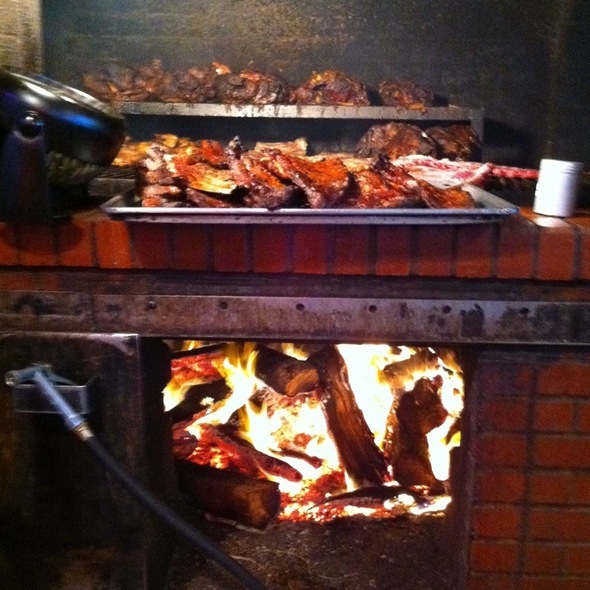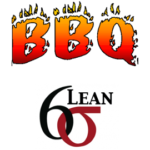 Please enjoy this wonderful post from our sales guy and burgeoning blogger Dave Knowles. Many of you may know that in his former life Dave was Director of Dining Services and Summer Conferences at Washington College. Dave helps us celebrate National Barbeque month with a “tasty” look at what barbeque and Lean Six Sigma have in common. As we come off the Memphis in May World Championship Barbeque Cooking Contest, we congratulate the FIVE-TIME World Champion Big Bob Gibson Bar-B-Que and Pig Master Chris Lily in neighboring Decatur, AL. Enjoy this blog and go enjoy some great barbeque!
Please enjoy this wonderful post from our sales guy and burgeoning blogger Dave Knowles. Many of you may know that in his former life Dave was Director of Dining Services and Summer Conferences at Washington College. Dave helps us celebrate National Barbeque month with a “tasty” look at what barbeque and Lean Six Sigma have in common. As we come off the Memphis in May World Championship Barbeque Cooking Contest, we congratulate the FIVE-TIME World Champion Big Bob Gibson Bar-B-Que and Pig Master Chris Lily in neighboring Decatur, AL. Enjoy this blog and go enjoy some great barbeque!

What Do Barbeque (BBQ) and Lean Six Sigma (LSS) have in Common?
(Aside from the fact that both have three-letter acronyms)
Well, as they say here in the South . . “y’all listen up.”
May is “National Barbeque Month” and we at LEAN Frog enjoy eating BBQ! ALL kinds of BBQ with different “rubs” and “sauces”!
We are also deeply committed to practicing LSS to benefit public education. Using LSS in non-instructional departments, we help school systems find opportunities and implement innovate solutions that result in increased efficiencies, enhanced communications, and reinvested resources for the classroom.
These two seemingly disparate pleasures/activities really have a lot in common.
- Both “work” everywhere
- Barbeque historically originated with native peoples in the Western Hemisphere and is served today throughout the US — from community celebrations to drive-through eateries to haute cuisine restaurants.
- Henry Ford, considered the “Father of Lean,” developed a lean approach to create efficiencies in his assembly line production. Six Sigma has its roots in Pareto’s Law in the 1880s but gained momentum in the 1980s with Motorola. Today LSS is a fundamental component in manufacturing and its practices have transferred into an ever-expanding list of industries (e.g., finance, health care, construction, education, etc.)
- Both Incorporate “Common Sense” Processes and Provide Effective Results
- BBQ is cooked slowly over low, indirect heat and uses smoke at low temperatures (usually around 240-280°F) combined with significantly longer cooking times. This cooking technique uniquely flavors meats, seafood, vegetables, cheeses, nuts, and beverages.
- LSS is a collaborative team effort focused on performance improvement. It systematically removes “waste” from processes and decreases “variance”, resulting in improved customer satisfaction and increased efficiencies. As a result, employee morale and quality of products and services are enhanced
- Both Utilize Essential, Specific Tools of the Trade
- BBQ uses tools such as the following:
- A wood, smoke-producing fire
- A grill on which items are placed for cooking
- Tongs/spatulas to “handle” food items
- Specialized “rubs” to season the raw meat
- Regional-specific “sauces” to enhance the flavor of the cooked meat
- LSS uses tools like the following:
- Standardized work -the optimal combination of people, equipment, materials, and processes to ensure tasks are completed with minimum waste to consistently and predictably meet customer requirements and expectations.
- The 5 Whys which help move past the symptoms toward uncovering the actual root cause of a problem. By asking the question “Why” five times, the true underlying cause(s) can often be determined.
- 5S (Sort, Straighten, Shine, Standardize, Sustain) for workspace organization.
- The fishbone diagram which is also known as a “cause and effect diagram.” A fishbone diagram is a structured tool for brainstorming and is an aid in identifying potential causes.
- The histogram – a data-containing graph which addresses the shape, frequency, dispersion and other factors. It can deliver a visual representation of data, which can be hard to comprehend in other forms of presentations.
- Frequency charts, also referred to as check sheets, are used to collect, organize, prioritize, and analyze variation. They can be used to answer the question, “How often is an event occurring?
- BBQ uses tools such as the following:
- Both Provide Benefits
- People love to eat BBQ! The food prepared by this cooking process infuses the cooked items with a unique and “homey” flavor that appeals to everyone’s desire for comfort foods. And, it is reasonably priced.
- LSS engages employees and promotes communication, efficiency, effectiveness, and sustainability. LSS initiatives are reasonably priced. The cost savings and value-add can provide a significant return on investment for organizations.